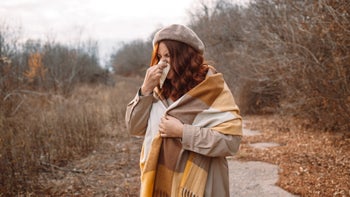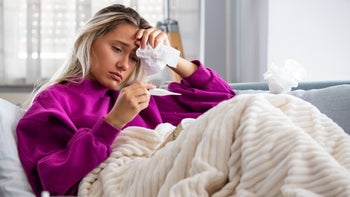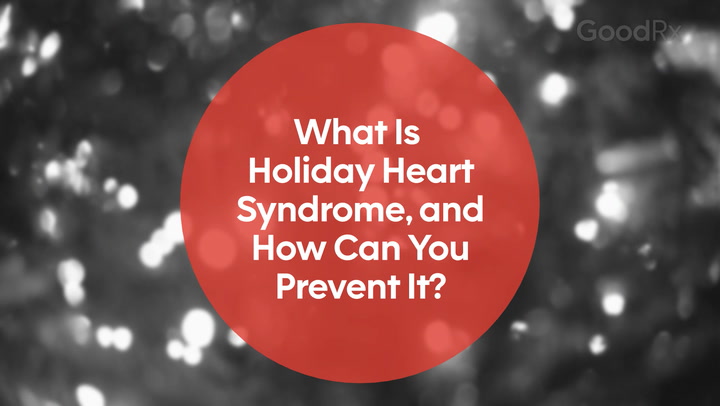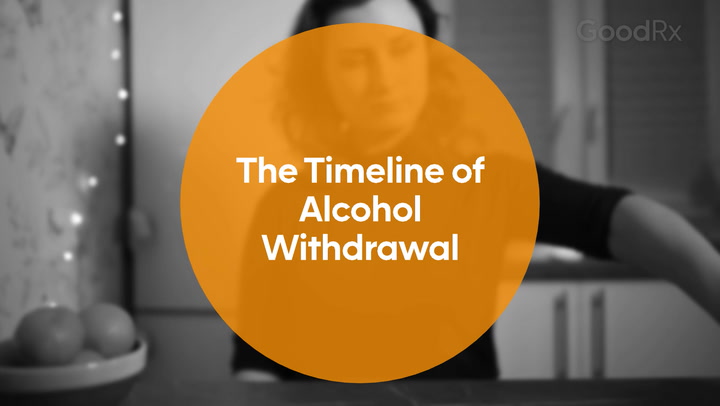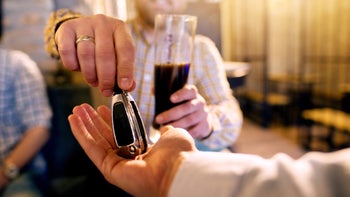
Hangover Cures: Remedies That Work and Don’t Work
Key takeaways:
Why do people get a hangover after drinking alcohol? The cause isn’t fully understood. But inflammation and dehydration probably play a big role.
Most hangover treatments provide relief from symptoms — they don’t “cure” a hangover. It’s a subtle difference but helps you set realistic expectations.
The less alcohol you drink, and the more you space out your drinks, the lower the chances of having a hangover.
Access savings on related medications
Table of contents

Most people have experienced a hangover — that horrible morning-after feeling of having overdone it on alcohol the day or night before. And, in fact, hangovers have been documented for thousands of years. But, modern science has yet to figure out how to cure one. If you ask around, or search for hangover cures online, you’ll likely be overwhelmed by folk remedies, personal anecdotes, and products that claim to magically cure your hangover.
But do any of these really work? And what’s the science behind them? Here, we’ll take a closer look at what the evidence says about hangover treatments and cures: which ones may work, and which really don’t.
What are typical hangover symptoms?
A hangover is characterized by unpleasant mental and physical symptoms that come on as blood alcohol levels return to zero.
Typical hangover symptoms can vary for different people, but commonly include:
Headache
Nausea
Fatigue
Thirst
Difficulty concentrating
Vomiting
Stomachache
Loss of appetite
Some foods and drinks can help with a hangover. From coconut water to chicken, here are the best (and worst) food and drinks when you’re dealing with a hangover.
Why are some hangovers worse than others? Histamine, sulfites, and other substances in alcoholic drinks can make hangovers feel worse. Learn how to avoid them.
Tips to get over a hangover: Three people share what works for them (and one doctor weighs in).
Can you take Tylenol and drink alcohol? Yes, you can have Tylenol and drink alcohol as long as you drink in moderation. But there are some serious risks of liver damage if you overdo it.
How to cure a hangover
If you’re looking for ways to help a hangover, there are some tried-and-tested approaches for managing symptoms. There isn’t one cure-all solution — each separate remedy tends to work on a few symptoms. Let’s take a look at some of the most effective medications and natural remedies.
1. NSAIDs
Since inflammation plays a role in why people feel so rough when they have a hangover, it would make sense that nonsteroidal anti-inflammatory drugs (NSAIDs) like ibuprofen (Advil) and naproxen (Aleve) could help. And they might — but the evidence isn’t clear.
In one study, people who took an NSAID called tolfenamic acid before drinking alcohol had fewer hangover symptoms and lower levels of inflammation. But, a more recent study showed that ibuprofen combined with alcohol could actually be toxic to liver cells after drinking.
Search and compare options
And, there’s another reason not to use NSAIDs to cure a hangover: They can be irritating to the stomach and cause kidney issues. It’s best to take NSAIDs with food and plenty of fluids, and space them out by at least a few hours before or after drinking alcohol.
Remember, while acetaminophen (Tylenol) is often used interchangeably with NSAIDs, it works differently. And it shouldn’t be taken for hangovers. In fact, acetaminophen can be toxic to the liver when drinking because both acetaminophen and alcohol affect liver function.
2. Treatments for upset stomach and nausea
While NSAIDs help lower overall inflammation, you may still need to control symptoms like nausea or upset stomach, caused by the irritating effect of alcohol on the stomach lining.
To ease the nausea or upset stomach from hangovers, try the following treatments:
Bismuth subsalicylate (Pepto-Bismol) is an over-the-counter anti-nausea medication.
Pepcid, Zantac, or Alka-Seltzer may help with some of the sour stomach you may feel.
3. Natural remedies and treatments
There are an overwhelming number of supplements and natural products on the market that claim to prevent or treat hangover symptoms. But do any work? There’s some evidence to suggest possible benefits from the following supplements. But — and this is a big but — the evidence is based on small studies only, and it’s pretty weak:
Pyritinol, a form of vitamin B6
L-cysteine, an amino acid
Red ginseng, a herb commonly used in Korea, may speed up how the body processes ethanol and reduce the intensity of hangover symptoms.
Korean pear juice, another traditional Korean hangover remedy, may also improve hangover symptoms and lower blood alcohol levels.
Prickly pear extract may improve nausea and other hangover symptoms, and lower inflammation.
Dihydromyricetin (DHM), a chemical derived from the Japanese raisin tree, may improve inflammation, reduce hangover symptoms, and protect the liver.
Read more like this
Explore these related articles, suggested for readers like you.
So, while supplements and natural products might sound like promising hangover cures, remember that much more research is needed to confirm the effectiveness and safety of these hangover supplements.
And, natural supplements, in general, aren’t regulated as tightly as prescription medications. That means it’s hard to know what you’re getting when you buy these. For example, some hangover supplements contain vitamins in higher amounts than what’s typically recommended. Others don’t disclose all the doses of the different ingredients they include.
As with medications, it’s always best to discuss any supplements and natural remedies that you’re considering with your healthcare professional.
4. Eat carbohydrates

Foods that are rich in carbohydrates can also help with hangover symptoms. Studies in people with diabetes have shown that drinking alcohol at night causes a drop in blood sugar levels the next morning. Low blood sugar can cause headaches and nausea, and it can also make you feel weak and lightheaded, worsening your hangover symptoms.
So eating carbohydrate-rich foods can help by increasing your blood sugar levels. And there’s another reason to eat carbs. With a hangover, it’s common to feel queasy and have an upset stomach. Foods like bread and rice are gentle on your stomach and can help you feel better faster.
Common myths about hangover cures
Much like natural supplements and products marketed at curing a hangover, there are plenty of anecdotal remedies that don’t have a whole heap of evidence supporting them. Here are a few of these hangover myths.
Myth #1: Beer before wine is fine
It turns out that the order or combination of different types of liquor doesn’t affect how bad your hangover will be. How much alcohol you drink matters more: The more you drink, the more likely you are to have a worse hangover. So, moderate how much you drink, and listen to your own cues. If you’re starting to feel drunk or unwell, stop drinking.
Myth #2: Hair of the dog
People commonly report that drinking more alcohol while you have a hangover will ease you through it. But there’s no evidence for this. If you’re hungover, more alcohol will just make you feel worse and add to the toxic burden your body is already experiencing.
Myth #3: Sleep
It’s common to feel tired after drinking too much. And, good quality sleep, when needed, is always a good idea. But here’s the catch: Excess alcohol consumption affects the quality of sleep you get, so even after a night’s sleep, it’s likely you’ll feel very tired the morning after the night before. The more you drink, the more likely your sleep will be disturbed.
Myth #4: Coffee and caffeine
A cup of coffee may perk you up during a hangover and help with certain symptoms, like that hangover headache. But beyond that, there isn’t much research for caffeine itself as a hangover cure.
A study in rats showed that caffeine may help relieve headache symptoms from a hangover. But, another study (conducted in a lab) found that coffee may actually slow down the rate of ethanol breakdown, which could potentially worsen hangovers. So, it’s unclear. Until more research is done on humans, the evidence of caffeine being a hangover cure is lacking.
4 tips to prevent a hangover
Although there’s growing evidence that no amount of alcohol can be considered safe, there are some ways to avoid getting a hangover after drinking.
1. Limit your alcohol intake
The less you drink — both in amount and frequency — the less likely you are to have a hangover. So cut back on the amount you drink, and slow down when you’re drinking. Alternating soft drinks or water between alcoholic drinks is a good way of slowing and lowering your alcohol consumption.
2. Hydrate
Drinking too much alcohol can cause dehydration. And as we’ve seen, this can worsen symptoms of a hangover, like fatigue and thirst. It’s a good idea to drink water before you start drinking alcohol, and to continue hydrating with water in between alcoholic drinks. Having a large glass of water or cup of noncaffeinated herbal tea before bed can also help to rehydrate you.
3. Avoid dark liquors
Dark liquors contain congeners, compounds that form when alcohol is made, which give these liquors their flavor and color. Bourbon and whisky may give you worse hangovers than clear liquors like vodka because of their higher congener content. Vodka can still give you a worse hangover than dark liquors, though, if you drink too much of it. This is because it’s the ethanol in alcohol that’s more likely to cause a hangover than a congener.
4. Eat something before you drink
Eating along with drinking alcohol slows the rate at which ethanol is absorbed into the bloodstream. It also helps you process alcohol faster. Both of these can mean you’re less likely to have a hangover if you drink with a full stomach versus an empty stomach.
How alcohol causes a hangover
There’s a solid amount of scientific research looking into what causes a hangover — and the headache that goes with it. And unsurprisingly, it’s down to how much alcohol you drink. The more alcohol you consume, the higher your blood alcohol concentration, and the worse your hangover will likely be.
But exactly how excessive drinking causes a hangover isn’t fully understood. It likely involves complex and interconnected processes. Here’s what seems clear.
After you drink an alcoholic drink, the alcohol (more specifically, ethanol) is absorbed into your blood, and travels all around your body affecting many different organs and processes. Because ethanol is toxic to the body, it works hard to break ethanol down and get rid of it.
A hangover is likely a combination of:
the lingering effects of excess alcohol on the brain and body
the impact of the body working hard to protect itself from alcohol and eliminate it from the blood
Together, the effects of too much alcohol on the body are experienced as symptoms of a hangover.
Here are some examples of how this plays out in the body:
Inflammation: High blood levels of alcohol increase inflammation in the body. It’s the body’s way of responding to injury or infection. Inflammation can affect the stomach and intestines, and it can cause widening of blood vessels in your body, including your skin and your brain. These changes may contribute to stomach pain, nausea, vomiting, flushing, and headaches.
Oxidative stress: Oxidative stress is what happens when the body works overtime to mop up harmful molecules called free radicals. Alcohol increases the production of these dangerous free radicals in the body. It’s likely that both the increase in free radicals — and the stress on the body from trying to neutralize them — play a role in many of the brain and digestive symptoms of a hangover.
Stomach irritation: Alcohol also affects the way your stomach works. It can increase the amount of stomach acid, and weakens stomach and intestinal muscles, causing heartburn, nausea, vomiting, and pain.
Altered brain signaling: Alcohol has powerful effects on the brain and the nervous system. It can affect your mood, coordination, reaction times, memory, and level of alertness. It does this by interfering with brain signaling and brain hormones. These effects can spill over into the next day and contribute to the tiredness and irritability associated with hangovers.
Disturbed sleep: Alcohol can also interfere with your sleep. So even though drinking too much may make you feel sleepy at first, it can disrupt your sleep patterns and affect your quality of sleep. Combined with the many other effects of alcohol, a bad night’s sleep can make a hangover even worse.
What causes a hangover headache?
So many things! One of the main ways alcohol causes a headache is through dehydration. But this isn’t the only way. Here are all the ways drinking too much can cause a hangover headache:
Dehydration: Alcohol is a diuretic, meaning it acts on the kidneys to produce more urine. The more urine you produce, the more fluids you lose from the body. Dehydration causes headaches.
Vasodilation: Alcohol expands blood vessels in the body, including in the brain. This can cause or worsen a headache, too.
Nausea and vomiting: Nausea and vomiting, common with hangovers, can also contribute to dehydration and cause or worsen headaches in this way.
Fatigue: Disturbed sleep, caused by excess alcohol, or a disturbed sleep-wake cycle, can also lead to headaches.
Sensitivity to other ingredients in alcohol: People may be sensitive to certain ingredients in alcoholic beverages, such as sulfites, histamines, or tyramine, which can all trigger headaches in some people.
The bottom line
Alcohol hangovers are thought to be caused by inflammation and other possible factors that scientists are still researching. So far, there’s no hangover cure. Most hangover treatments are geared toward treating symptoms of a hangover, while some may help with underlying inflammation.
There are a few ways to lessen the chances of getting a hangover if you choose to drink. First, drink alcohol in moderation. And make sure you drink plenty of water before and after drinking alcohol.
Why trust our experts?


References
Drinkaware. (2022). Is alcohol harming your stomach?
Jayawardena, R., et al. (2017). Interventions for treatment and/or prevention of alcohol hangover: Systematic review. Human Psychopharmacology: Clinical & Experimental.
Kaivola, S., et al. (1983). Hangover headache and prostaglandins: Prophylactic treatment with tolfenamic acid. Cephalalgia.
Kim, H., et al. (2017). A standardized extract of the fruit of Hovenia dulcis alleviated alcohol-induced hangover in healthy subjects with heterozygous ALDH2: A randomized, controlled, crossover trial. Journal of Ethnopharmacology.
Kim, M., et al. (2021). Ibuprofen increases the hepatotoxicity of ethanol through potentiating oxidative stress. Biomolecules & Therapeutics.
Köchling, J., et al. (2019). Grape or grain but never the twain? A randomized controlled multiarm matched-triplet crossover trial of beer and wine. American Journal of Clinical Nutrition.
Lee, H. S., et al. (2013). Effect of Korean pear (Pyruspyrifolia cv. Shingo) juice on hangover severity following alcohol consumption. Food and Chemical Toxicology.
Lee, M. H., et al. (2014). Red ginseng relieves the effects of alcohol consumption and hangover symptoms in healthy men: A randomized crossover study. Food & Function.
Mackus, M., et al. (2020). The role of alcohol metabolism in the pathology of alcohol hangover. Journal of Clinical Medicine.
Mammen, R. R., et al. (2018). Clove bud polyphenols alleviate alterations in inflammation and oxidative stress markers associated with binge drinking: A randomized double-blinded placebo-controlled crossover study. Journal of Medicinal Food.
Maxwell, C. R., et al. (2010). Acetate causes alcohol hangover headache in rats. PLOS One.
National Center for Complementary and Integrative Health. (2020). Dietary and herbal supplements.
National Institute on Alcohol Abuse and Alcoholism. (2021). Hangovers.
O’Connor, A. (2022). How to cure (or prevent) a hangover. The Washington Post.
Palmer, E., et al. (2019). Alcohol hangover: Underlying biochemical, inflammatory and neurochemical mechanisms. Alcohol and Alcoholism.
Paton, A. (2005). Alcohol in the body. BMJ.
Roberts, E., et al. (2021). The efficacy and tolerability of pharmacologically active interventions for alcohol-induced hangover symptomatology: A systematic review of the evidence from randomised placebo-controlled trials. Addiction.
Rohsenow, D. J., et al. (2010). The role of beverage congeners in hangover and other residual effects of alcohol intoxication: A review. Current Drug Abuse Reviews.
Srinivasan, S., et al. (2019). Influence of food commodities on hangover based on alcohol dehydrogenase and aldehyde dehydrogenase activities. Current Research in Food Science.
Stein, M. D., et al. (2005). Disturbed sleep and its relationship to alcohol use. Substance Abuse.
Swift, R., et al. (1998). Alcohol hangover: Mechanisms and mediators. Alcohol Health and Research World.
Turner, B., et al. (2001). The effect of evening alcohol consumption on next-morning glucose control in type 1 diabetes. Diabetes Care.
van de Loo, A. J. A. E., et al. (2020). The inflammatory response to alcohol consumption and its role in the pathology of alcohol hangover. Journal of Clinical Medicine.
van Schrojenstein Lantman, M., et al. (2017). The impact of alcohol hangover symptoms on cognitive and physical functioning, and mood. Human Psychopharmacology.
Verster, J. C., et al. (2020). Updating the definition of the alcohol hangover. Journal of Clinical Medicine.
Verster, J. C., et al. (2021). Unknown safety and efficacy of alcohol hangover treatments puts consumers at risk. Addictive Behaviors.
Wiese, J., et al. (2004). Effect of Opuntia ficus indica on symptoms of the alcohol hangover. Archives of Internal Medicine.








